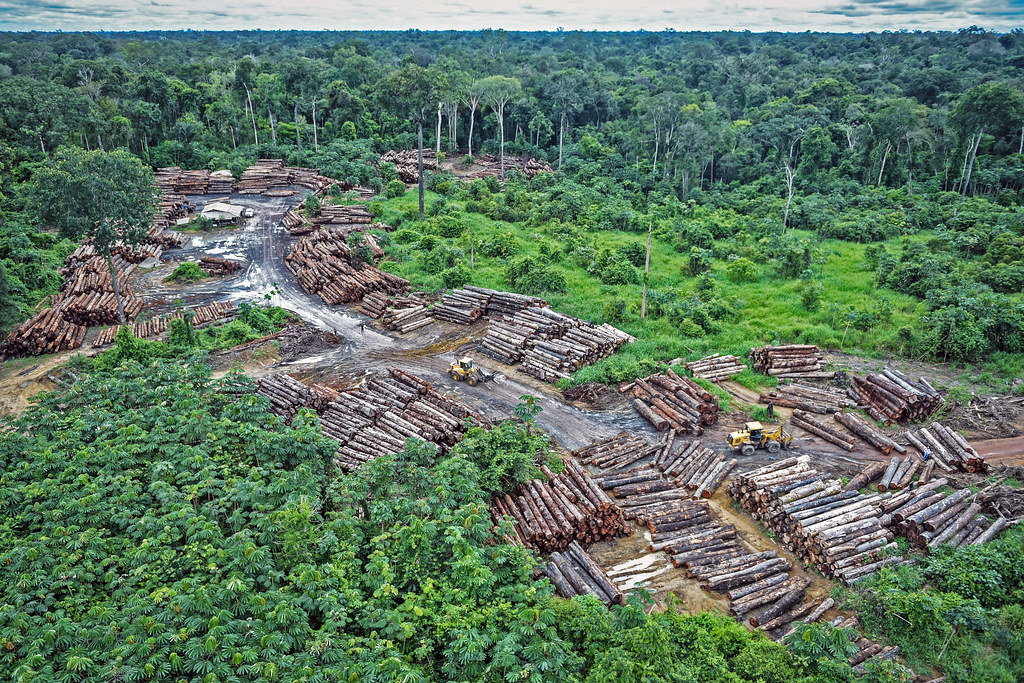
A Stable Latin America Needs Stable Ecosystems
If you drank a cup of coffee this morning or recently ate some chocolate, thank nature for the critical role it played in producing the food you ate. We might not always be cognizant of it, but humans depend on nature for a broad range of goods and services. Latin America and the Caribbean (LAC) is a region that is uniquely dependent on its ecosystems for economic and social stability. The region is also home to some of the most diverse, productive ecosystems on Earth; ecosystems that are facing existential threats from climate change and unsustainable human activities. Without reliable economic productivity that comes from robust ecosystems, the LAC region will likely continue to experience the extreme poverty and social upheaval which has defined much of its modern history. The health of the region’s ecosystems isn’t just a problem for LAC nations, the developed world’s apathy towards one of the most ecologically significant areas in the world is a threat to global stability and security.
Economic & Social Stability
Economic activity in the LAC region is, in large part, driven by industries that rely on ecosystem services. Agriculture,fisheries, forestry, and tourism account for significant portions of the region’s overall GDP and employment. These industries would not exist without ecosystem services that pollinate crops, maintain fish populations, generate fertile soil, and attract ecotourists. The free services provided by healthy ecosystems offer billions of dollars in added value to regional economies each year.
Climate change threatens the long-term outlook for these industries, and unsustainable economic activities are magnifying the effects of climate change. Higher ambient temperatures, extreme droughts, increasingly frequent natural disasters, and more favorable conditions for invasive species may result in immeasurable losses to ecosystem services and regional economies over the next century. The aforementioned heatwaves and ambient temperature shifts are expected to reduce agricultural outputs by up to 53%. Seasonal temperature shifts and coral reef bleaching will cause fish populations to migrate or become extinct, potentially cutting regional fishery outputs in half. Clear-cutting of forested areas for timber, and the replacement of those forests with agricultural land, is partially to blame for increased soil erosion that is accelerating desertification.
The feedback loop of climate impacts and the degradation of regional ecosystems is also undermining social stability. Roughly four in ten people in the region are employed by an industry that relies on healthy ecosystems. Less productive ecosystems mean fewer jobs in a region already struggling with extreme poverty. The lack of economic opportunity in the LAC region is a significant contributor to migration and is at least partially responsible for the humanitarian crisis at the southern U.S. border.
On the other hand, stable ecosystems that provide lucrative ecosystem services incentivize foreign investment, which in turn creates stable middle-class job opportunities. A robust middle-class is a critical factor for development as middle-class taxpayers provide substantial revenue for regional governments. Healthy ecosystems are an essential cornerstone for the development of the social services and infrastructure that middle-class tax dollars and foreign investment fund. Well-financed economies can more efficiently produce and export natural goods, better social services will lead to higher life expectancies, and politically and socially stable nations will attract more substantial investments. These are the exact indicators economists look for when assessing the economic health of a developing nation, and are goals the region can achieve through promoting ecological stability.
The Price of Apathy
It may be tempting to write off the state of ecosystems in the LAC region in the face of more pressing current events, but the cost of allowing ecosystems in the LAC region to decay further is mounting. The degradation of the Amazon is approaching a tipping point that climate experts predict may result in ecological collapse. Such a collapse will be devastating for the LAC region and the world.
Once the tipping point is reached, remaining forests will shrink rapidly, leaving hotter, drier land in its place. The incredible pace at which desertification will ripple across the continent may displace millions. Those that rely on the Amazon for agriculture and water recycling will, over just a few years, find their crops drying up or burning down. In a region where more than one-third of the population lives in poverty, a sudden food shortage may cascade into an unprecedented humanitarian crisis. Forget developing social services and infrastructure, providing enough food and water to prevent mass starvation and dehydration may require an unheard-of level of international aid.
On a global scale, disappearing rainforests will change how moisture and air circulate through the atmosphere, changing weather patterns from the American Midwest to Africa and upsetting agriculture worldwide. The loss of large portions of the Amazon will also eliminate one of the world’s most effective carbon sinks, fatally compromising the effort to keep the average global temperature from rising more than 2°C by 2100. Anthropogenic carbon will instead diffuse into the world’s oceans, causing acidification and physical changes that may alter Earth’s oceans in ways scientists are still trying to understand.
The LAC region’s ecosystems have an outsized impact on global climate stability and should be important to regional and international policymakers. If LAC ecosystems continue to atrophy, the consequences will be severe. The LAC region’s most valuable resource will wither, costing developing economies billions in lost ecosystem services. Individuals may find themselves unable to provide for themselves or their families, forcing them to choose between poverty and a risky journey to the U.S. border. The loss of millions of hectares of rainforest will require significant international aid and decades to repair. Even in a best-case scenario, the damage already done to critical carbon sinks will make fighting climate change that much harder. Each day that the status quo is allowed to endure we’re trading regional stability and global climate health for persistent poverty and immeasurable ecological costs; this is not sustainable. The security and stability of the LAC region, and potentially the world, depends on maintaining healthy ecosystems.






